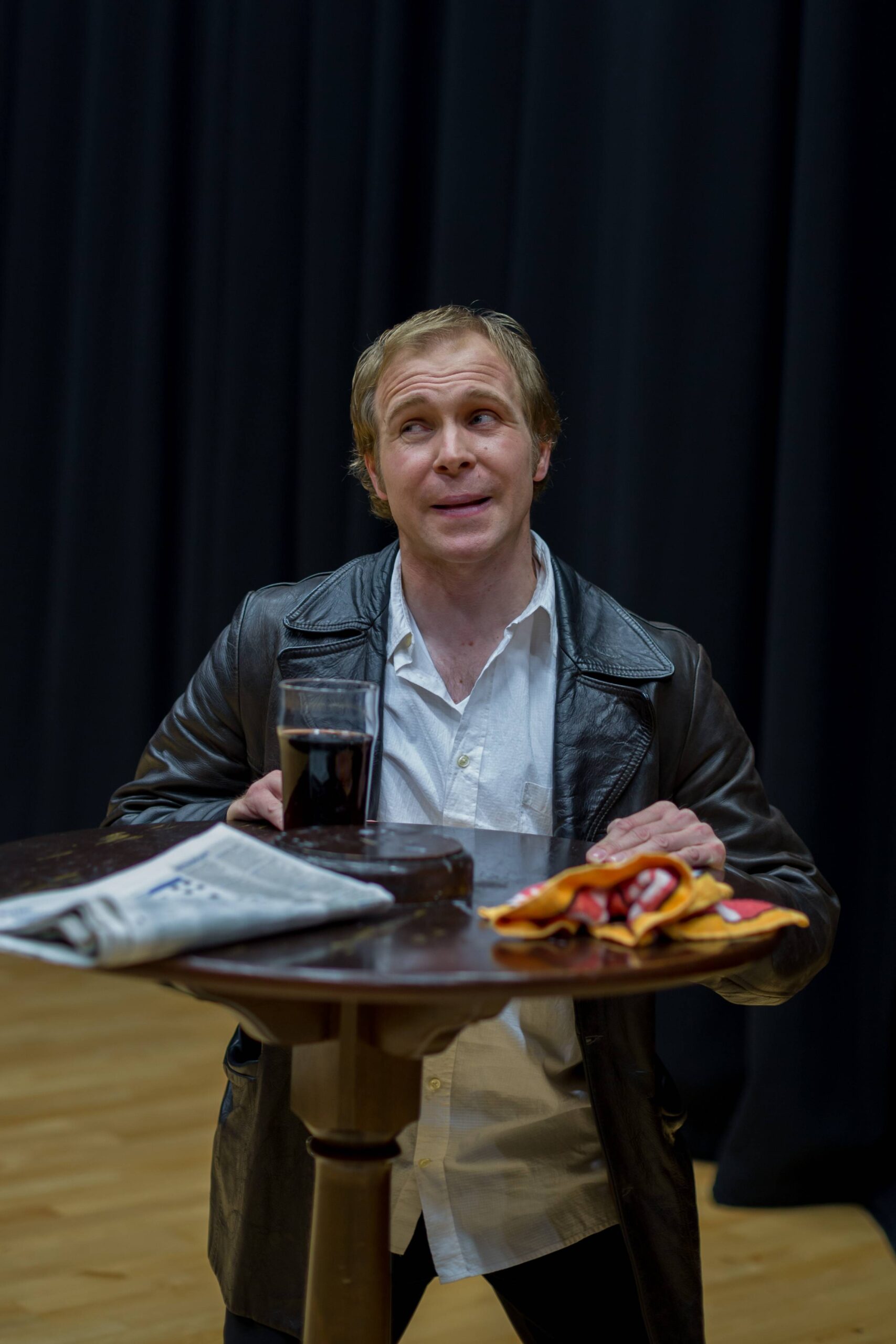A FORMER county cricketer has written a play about Colin Milburn, a legend of the game who lost an eye – three years after the author suffered the same fate.
James Graham-Brown, former Kent bowler and Sevenoaks School pupil, returns to his alma mater next week to watch a performance of his latest work: When The Eye Has Gone.
Milburn was one of the great entertainers of the game and a huge character in more ways than one – he weighed more than 18 stone, even at the peak of his career. And the play, which has been staged at all 18 first-class cricket grounds around the country, including Lord’s and The Oval, has been hailed as a great success.
James has written 29 plays since he retired from the game in 1978, but this is the first time he has written about cricket. “It all felt too personal before,” he says.

His latest oeuvre has that extra dimension of resonance, however, because of the disability – although the choice was not deliberate.
James, who is 65 and now lives in Bath, says: “I lost an eye in 2013. I had a central retinal vein occlusion – it also happened to my dad, so it must be a genetic weakness.
“Subconsciously, I suppose there was a connection when I decided to write about Milburn. I think I was drawn to him because of that.”
The playwright, who works under the nom de plume of Dougie Blaxland, was asked to write the piece by the players’ union amid concerns over the welfare of the sport’s practitioners.
“I was approached by Jason Ratcliffe of the Professional Cricketers’ Association to do it. He had been to see my play Hands Up for Jonny Wilkinson’s Right Boot, which was commissioned by the Rugby Football Union for the World Cup that year.
“He said: ‘We’d like you to write something because of the mental health issues in the game’. Two players had recently taken their own lives, and then there are the problems that Jonathan Trott [a former England batsman] has had.”
James, who went on to teach and became a headmaster, mused: “Cricketers find it very hard to cope with life, -especially outside the game. Is it to do with the people who are attracted to it? Or it is the game itself?
“You play longer than other sports, so you’re less adaptable when it finishes. And you don’t make a fortune. It’s not like Rio Ferdinand, who just goes out and buys a hotel.”
Milburn was a hard-hitting England batsman who lost his eye in a car accident in 1969, just as he was reaching the peak of his powers. He was forced to retire, and died at the age of 48.
“He declined into chronic alcoholism, and died in a pub car park at the North Briton [in Aycliffe, Durham]. The landlord said he was telling jokes at the bar right up to the end.”
The one-man show, produced by Roughhouse and directed by Australian Shane Morgan, is set in a pub. The actor Dan Gaismith plays 52 characters in 75 minutes.
A tour de force like its subject matter, it exposes a very different side to the larger-than-life wit and raconteur who was known universally as ‘Ollie’ after Oliver Hardy.
“He was very charismatic, very funny, always the heart of the party,” says James, who recalls that fellow bon viveur Ian Botham was one of Milburn’s close friends – and a pall-bearer at his funeral.
“But he was also a very lonely man, which is why it’s a one-man show. Everyone thought they knew him, the public exterior of ‘jolly Ollie’, with him saying: ‘I’ll have a triple gin and coke’. But it wasn’t like that.”
However, When The Eye Has Gone is also a celebration of one of the great unfulfilled talents of British sport.
“He was like the John Lennon of cricket,” claims James. “It was coming to the end of the 60s. Cricket was in the doldrums at the time, it was a very boring game, and he revitalised it single-handed.
“He came from a mining community, and when he started playing, the English batting order was like a public school team. He was a breath of fresh air.”
James adds: “Ollie was totally unconventional, and 18 and a half stone – you would never get away with that in these days of fitness fanatics.
“But most of the players I talked to who came to see the play have said he would have won Strictly Come Dancing, he was so light on his feet.”
James says he found the process of writing the play ‘very moving’.
“We performed it in his home village of Burnopfield in Durham, and half the village turned up. I was looking out at the audience and there were all these big fat men there who looked like Ollie.
“His oldest friend, Bill Brown, who used to play with him in the park, was there, and he had not seen Ollie’s cousins since the funeral in 1990.
“It was a really significant moment. I cried. They said we’d got him bang on. We just went and got drunk, we didn’t know what else to do.”
When The Eye Has Gone will be performed at the Sackville Theatre in Sevenoaks School on Tuesday March 21, at 4.30pm and 7.30pm, followed by a Q&A session with the author.








